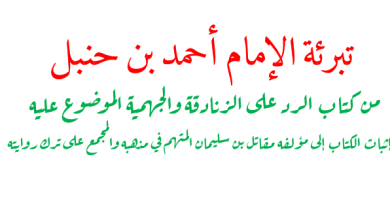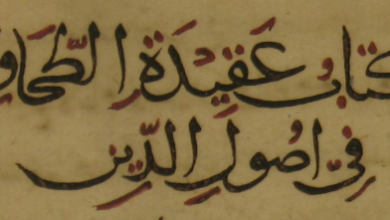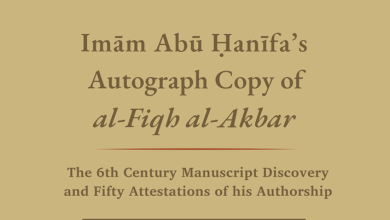UNDERSTANDING THE ATTRIBUTES (ṢIFĀT) OF ALLĀH ACCORDING TO IMĀM IBN JAMĀʿAH (d. 733 AH)
The following is from a forthcoming full translation of the named work:
“Īḍāḥ al-Dalīl fī Qaṭʿ Ḥujaj Ahl al-Taʿṭīl” (Clarification of Evidence in Cutting Off the Arguments of the Negators of Divine Attributes) is a significant theological work by Imām Badr al-Dīn ibn Jamāʿah (d. 733 AH/1333 CE). The text addresses one of the central debates in Islamic theology: the proper understanding and affirmation of divine attributes while avoiding both anthropomorphism and complete negation. Written by a prominent Shāfiʿī scholar, this work specifically refutes the arguments of those who completely negate Allah’s attributes (Ahl al-Taʿṭīl). The modern edition has been prepared by the late Shaykh, Wahbī Sulaymān Ghāwjī al-Albānī (d. 2013), making this classical theological treatise accessible to contemporary readers.
In this important passage from the text, Ibn Jamāʿah explains how the scholars of Ahl al-Sunnah responded to various theological innovations regarding divine attributes. He outlines two main methodological approaches that emerged among orthodox scholars (pp. 92-93, Arabic text – app.turath.io/book/6547?page=84):
The people of truth needed to respond to what they (innovators) invented and establish proofs against what they said, and they divided into two groups:
First: The people of interpretation [taʾwīl] who devoted themselves to refuting the innovators from among the anthropomorphists (mujassima), deniers [of attributes (ṣifāt)], and others like the Muʿtazilites, those who make comparisons [with creation, Mushabbiha], and the Khawārij, when each of them revealed their innovation and called to it.
The people of truth stood up to support [the truth] and defend against these innovations by invalidating them. They interpreted those ambiguous verses [mutashābihāt] and hadiths according to meanings [maʿnā] befitting Allah’s majesty using the Arabic language and rational and transmitted evidence, so that Allah might establish truth through His words and invalidate falsehood through His proofs and indications.
Second: Those who hold the view known as the position of the Salaf, which is to definitively state that whatever is unbefitting of Allah’s majesty is not intended, while remaining silent about specifying which of the meanings [maʿnā] befitting Allah’s majesty is intended when the wording could have multiple meanings that are all befitting of Allah’s majesty.
Both groups definitively state that whatever is unbefitting of Allah’s majesty from among created beings’ attributes [ṣifāt] is not intended, and both are upon truth.
Some prominent scholars preferred the Salaf’s position because it is safer, while others preferred the position of interpretation [taʾwīl] due to its necessity. And Allah knows best.
And whoever claims adherence to the Salaf’s position but affirms anthropomorphism [tashbīh], or modality [takyīf], or interprets the wording according to its outward/apparent meaning [ẓāhir] in ways that Allah is far above – from among the attributes [ṣifāt] of created beings – such a person is false in their claim and is free from [i.e., has nothing to do with] the Salaf’s balanced position.
Compiled by: Abul Hasan Hussain Ahmed






